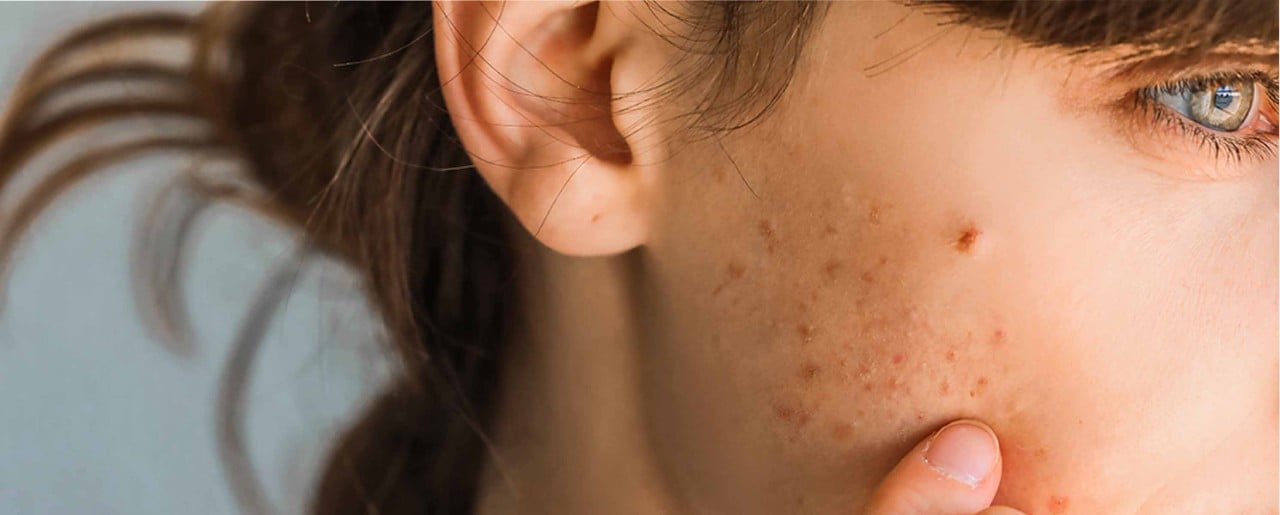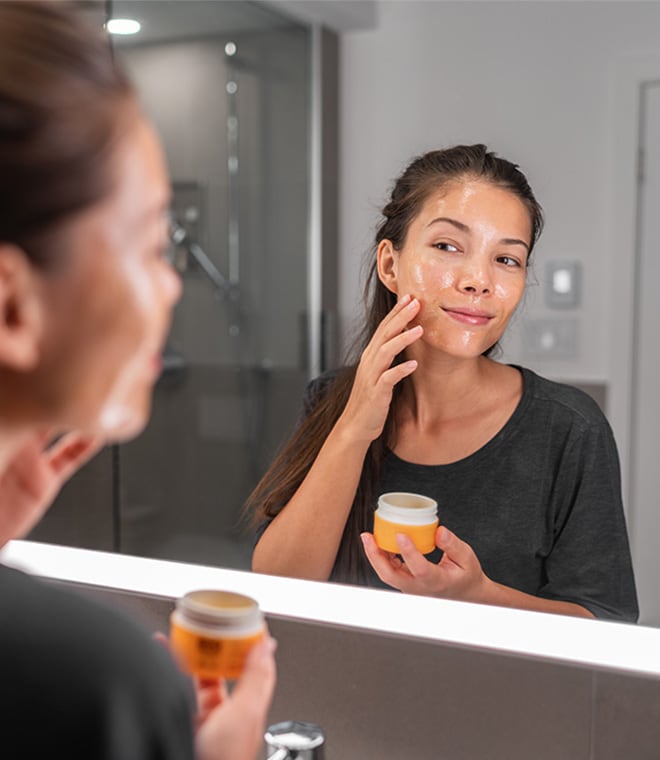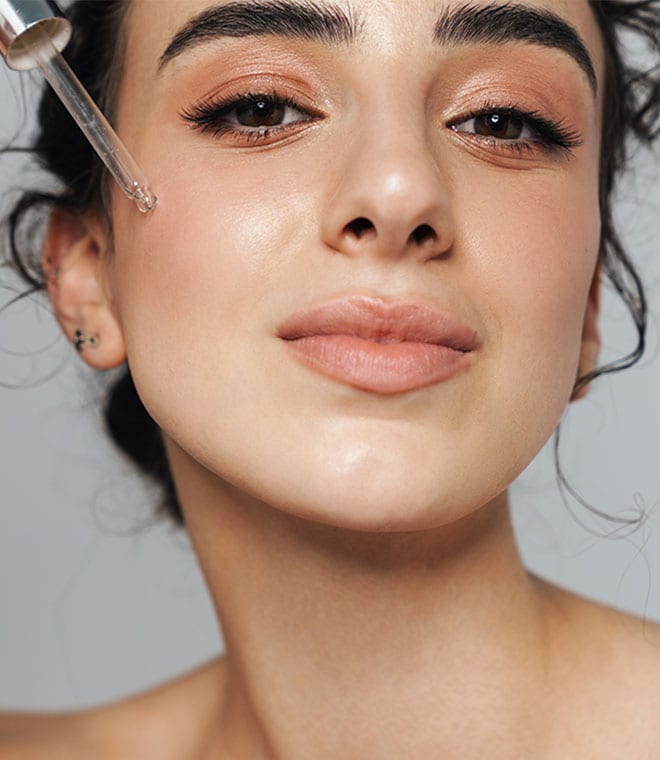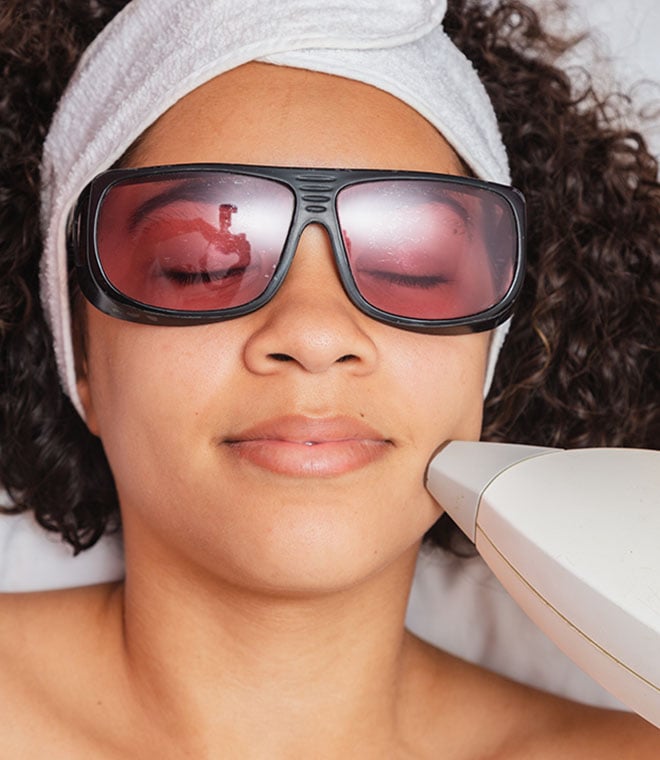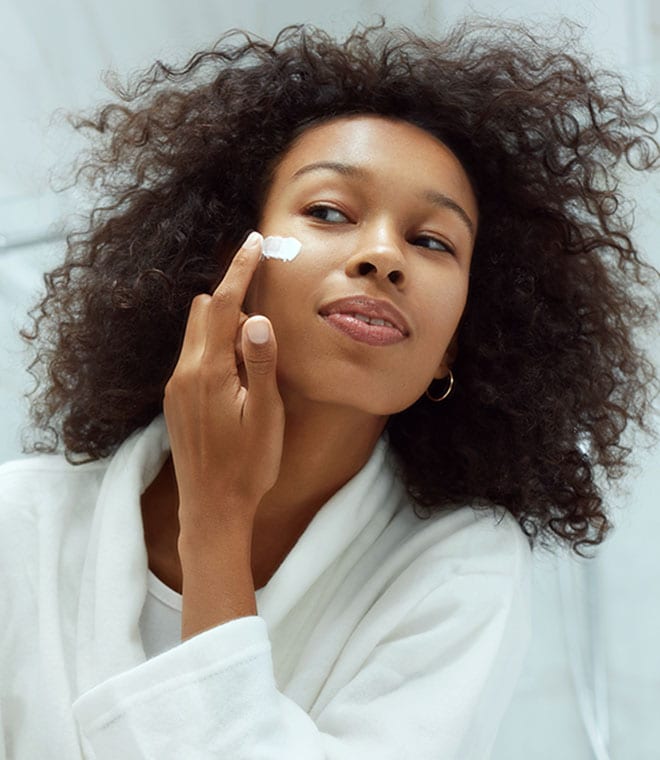Beauty
Retinol for acne scars: Does it help?
By Anna H. Chacon, MD, Fellow of the American Academy of Dermatology Apr 19, 2024 • 4 min
Retinol is a form of vitamin A that’s commonly used in skin care products. Retinol is a retinoid, a class of medications commonly used to treat skin conditions like acne and psoriasis and reduce the appearance of fine lines and wrinkles. Retinol may also help with acne scars.
What does retinol do?
Retinol is mainly used as an anti-aging ingredient in skin care products. It’s a potent antioxidant that helps repair sun and environmental damage to the skin, and it boosts collagen production while promoting the regeneration of healthy skin cells.
Retinol may not dry out the skin as much as other stronger retinoids, such as tretinoin. However, products with retinoid ingredients can make your skin more sensitive to the sun, so you should make sure to wear sunscreen with at least 30 SPF (sun protective factor). Retinoids may not be appropriate for everyone, as these products may irritate some people’s skin, especially when using products with a higher concentration of retinoid ingredients. People who have certain skin conditions, such as eczema, skin allergies or dryness, may experience worsening irritation or dryness. Hyperpigmentation of the skin may also occur from retinoid use due to irritation.
Does retinol help with acne scars?
Both over-the-counter and prescription-strength products containing retinol are known to help treat acne and reduce the appearance of acne scars. Retinol is also found in many acne scar treatment products because it promotes new skin cell growth and helps even out skin texture and skin tone — all of which can help reduce the appearance of newer, red acne scars and older scars.
However, it typically takes at least a couple of months for retinol to fade acne scars, and even prescription-strength retinol may not produce the results you want to achieve. Retinol is likely to have very little, if any, noticeable effect on the appearance of severe acne scarring. Ask your healthcare provider about treatment options for more severe scars.
Can any retinoids fade acne scars?
Stronger concentrations of retinol may help fade the appearance of some acne scars, but in general, retinoids are used to treat active acne to help prevent scarring or reduce its severity. These stronger retinoids include tretinoin, isotretinoin and adapalene.
If you have severe acne scarring, your dermatologist will likely recommend other treatment approaches, which may include laser resurfacing, chemical peels, dermabrasion, cryotherapy, laser treatment, fillers or injections.
Reducing the risk of acne scars
If you have occasional breakouts, adding a retinol product to your skin care routine may help prevent those breakouts and reduce the chances of scarring. But if you have moderate to severe acne, the sooner you seek professional treatment, the better the outcome will likely be in terms of the extent and severity of scarring. The right acne treatment for you may depend on a number of factors, including the type and location of your acne, how severe it is, what your skin type is and whether your skin is very sensitive.
The successful treatment of acne scars requires a similar individualized approach. The right treatment for you depends on your skin type and sensitivity, the types of scars you have and how old they are. Visit your healthcare provider. They can evaluate your scars and develop a treatment plan just for you.
Clinically reviewed and updated by Julie McDaniel, MSN, RN, CRNI, April 2024.
- https://www.aocd.org/page/Retinoidstopical
- https://pubmed.ncbi.nlm.nih.gov/30909329/
- https://www.aad.org/public/diseases/acne/derm-treat/scars/treatment
- https://www.aad.org/public/everyday-care/skin-care-secrets/anti-aging/retinoid-retinol
- https://www.aad.org/public/everyday-care/skin-care-secrets/anti-aging/retinoid-retinol
- https://www.skincancer.org/blog/ask-the-expert-does-a-high-spf-protect-my-skin-better/
- https://www.aad.org/public/diseases/acne/derm-treat/scars/treatment
- https://www.aad.org/public/diseases/a-z/keloids-treatment
- https://www.aad.org/public/diseases/acne/derm-treat/treat
